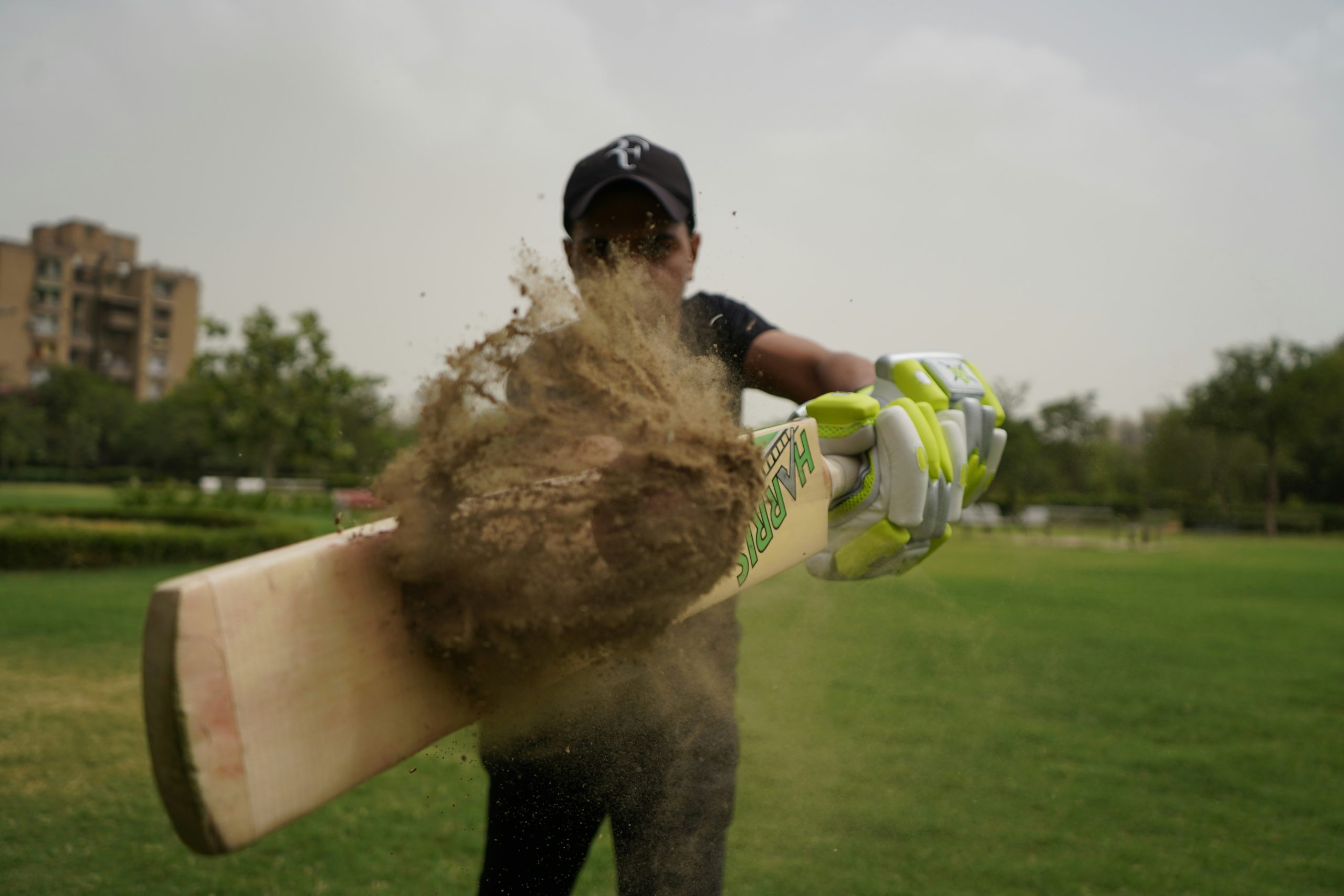
Impact of Sports Psychology on Athletic Performance
Impact of Sports Psychology on Athletic Performance
Alright, folks, let’s dive into the fascinating world of sports psychology and how it can seriously up your game! Ever wondered why some athletes seem to have that magic touch? Its not all about physical prowess; a lot of it is up in the ol noggin. So, grab your favorite drink, sit back, and let’s break it down!
What is Sports Psychology?
Sports psychology is like having a mental coach on your team, helping you get your head in the game. It involves the study of how psychological factors affect performance and how participation in sports and exercise affect psychological and physical factors. It’s a two-way street, baby!
Think of it as the mental gym where athletes train their brains to handle pressure, stay motivated, and recover from setbacks. It’s not just about dodging a bad mood; it’s about optimizing mental performance to gain that extra edge.
The Mind-Body Connection
You know, theres this saying, “It’s all in your head,” and in sports, that’s more true than you’d think. Your mind and body are in constant conversation. When your mind believes in your abilities, your body often follows suit. And vice versa! Kinda like how you feel invincible after your morning coffee.
- Mental Imagery: Picture thisliterally. Athletes often visualize their performance, seeing themselves scoring goals or making perfect landings. Its like a mental dress rehearsal.
- Focus and Concentration: Being able to tune out distractions is huge. Ever tried focusing on work when your phone keeps buzzing? Same for athletes, but on a grander scale.
- Stress Management: High-pressure situations can make or break an athlete. Learning to stay cool under pressure is a game-changer.
Case Study: The Power of Visualization
Let’s talk about Michael Phelps for a second. This guy didnt just swim; he visualized every race. Before his races, he would see himself in the water, feeling every stroke, imagining the competition. Its no wonder hes got all those gold medals clanking around!
Visualization isnt just for Olympians, though. Weekend warriors and amateur athletes can benefit too. Just imagine yourself acing that tennis serve or hitting a hole-in-one. Your brain starts believing it, and your body can follow.
Motivation: The Fuel for Performance
Alright, lets keep it realstaying motivated aint always easy. Weve all had those days where the couch looks more appealing than the gym. For athletes, motivation is the secret sauce that keeps them pushing through the pain and exhaustion.
- Intrinsic Motivation: This is the love for the game. Athletes who are intrinsically motivated play because they genuinely enjoy the sport. Its like how some people love gardeningno one’s paying them, but they find joy in it.
- Extrinsic Motivation: Think trophies, money, fame. While these can be powerful motivators, they sometimes fade. The trick is balancing both types.
Take Serena Williams, for example. Sure, she’s got a ton of titles, but she often talks about her love for the game itself. Thats intrinsic motivation at work, folks.
Dealing with Pressure and Anxiety
Sports can be a pressure cooker. Imagine the whole stadium watching you, the clock ticking down, and you’re the one who has to make the game-winning move. Gulp. The anxiety is real, my friend.
Sports psychologists help athletes develop strategies to cope with this pressure. Techniques like deep breathing, progressive muscle relaxation, and even mindfulness can make a world of difference.
Personal Anecdote: My First Marathon
Okay, quick story time. I ran my first marathon a few years back. Let me tell ya, it wasnt just my legs that got a workoutmy brain did too. Around mile 20, my body was screaming to stop, but I kept picturing myself crossing that finish line. I remembered some advice about breaking the race into smaller, more manageable parts. Instead of thinking, “Ugh, 6 more miles,” I thought, “Just get to the next water station.” Boom, it worked! Mind over matter, people.
The Role of Goal Setting
Goals are like the GPS for athletes. Without them, youre just wandering around, hoping to end up somewhere good. Setting clear, achievable goals gives athletes direction and purpose.
- Short-Term Goals: These are the daily or weekly targets. Maybe it’s shaving a few seconds off a run or perfecting a technique.
- Long-Term Goals: These are the big dreams, like winning a championship or qualifying for the Olympics.
Good goals are SMART: Specific, Measurable, Achievable, Relevant, and Time-bound. No fluff, just clear, actionable steps. Think of it like leveling up in a video gameeach small win gets you closer to the ultimate goal.
Building Resilience
Resilience is the ability to bounce back from setbacks. In sports, this is crucial. Athletes face losses, injuries, and slumps all the time. It’s not about how many times you fall; it’s about how many times you get back up.
Kobe Bryant, for example, was a master of resilience. He didn’t just coast on talent; he worked insanely hard, often training before sunrise. When he faced injuries or defeats, he came back stronger. That Mamba mentality is all about resilience.
Case Study: Overcoming Adversity
Remember Derek Redmond in the 1992 Olympics? He tore his hamstring during the 400m semifinals. Instead of quitting, he got up and hobbled to the finish line with his dads help. Thats resilience in action. It wasnt about winning the race; it was about finishing it. Sometimes, thats the bigger victory.
The Social Aspect
Sports aren’t just a solo gig; there’s a huge social component. Team dynamics, coaching relationships, and even the crowd can impact performance.
- Team Dynamics: A cohesive team can perform better than a group of all-stars who dont gel. It’s like a bandeveryone’s gotta play their part harmoniously.
- Coaching Relationships: A good coach is like a good therapist. They understand the athletes strengths and weaknesses and know how to push the right buttons.
- Fan Support: Ever noticed how home teams often have better records? Thats the power of a supportive crowd. The energy is contagious!
Lets not forget the infamous 12th man in football (soccer, for our American readers). The crowds energy can lift a team to new heights or, if its a hostile away game, crush their spirits. The psychological impact is massive.
Mindfulness and Meditation
Heres a little secretmany top athletes practice mindfulness and meditation. It helps them stay present, focus on the now, and not get bogged down by past mistakes or future anxieties.
Take LeBron James, for instance. Hes known to meditate before games. Its about getting into the zone and staying there. Meditation helps reduce stress, improve concentration, and boost overall mental well-being.
Techniques for Practicing Mindfulness
- Breathing Exercises: Simple, yet effective. Focusing on your breath can calm the mind and body.
- Body Scans: This involves mentally scanning your body from head to toe, acknowledging any tension or stress points.
- Guided Imagery: Similar to visualization, this technique involves imagining a peaceful place or successful performance scenario.
Mindfulness isn’t about emptying your mind but rather being aware of your thoughts and feelings without getting caught up in them. Its like letting them float by like clouds in the sky. Ah, zen vibes.
Personal Reflection: The Power of Mindfulness
I tried mindfulness during a stressful project at work. I was skeptical at first, thinking it was all just woo-woo stuff. But after a few sessions of guided meditation, I found myself less frazzled and more focused. Its like giving your brain a spa day. Highly recommend giving it a shot, especially if lifes got you all tied up in knots.
Sports Psychology for the Weekend Warrior
Now, you might be thinking, “Im not an Olympian, do I really need all this?” Heck yeah, you do! Sports psychology isnt just for the pros. Whether youre hitting the gym, running local races, or playing in a weekend league, these techniques can help you up your game.
- Set Clear Goals: Aim to run a little farther, lift a bit heavier,
or improve your form. Make those goals SMART!
- Visualize Success: Before your next game or workout, spend a few minutes visualizing yourself succeeding. Feel the victory!
- Stay Motivated: Find your why. Maybe its getting healthier, relieving stress, or just having fun. Keep that reason front and center.
- Handle Setbacks: Remember, everyone has off days. Dont let one bad game or workout derail your progress. Get back on that horse!
Conclusion: The Winning Edge
So, there you have itthe lowdown on how sports psychology can seriously impact athletic performance. Its not just about brawn; its about brain too. From visualization and motivation to resilience and mindfulness, these techniques can turn a good athlete into a great one. And hey, even us mere mortals can benefit from a little mental training.
Next time youre gearing up for a big game or even just a big workout, remember: its all in your head. Get your mind right, and your body will follow. Now go out there and crush it!
And if all else fails, just remember this little nugget: “You miss 100% of the shots you dont take.” Wayne Gretzky. Or as Michael Scott put it, “Thats what she said.”
Cheers to mental mastery and athletic excellence! Now, where did I put that foam roller?
